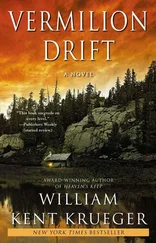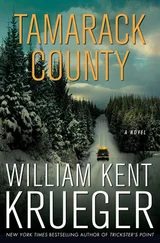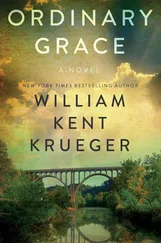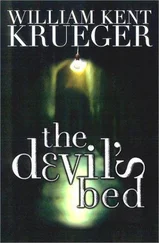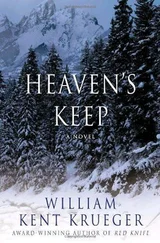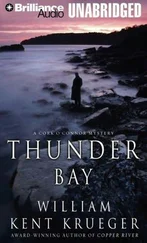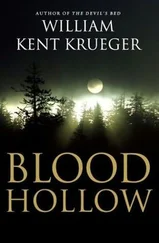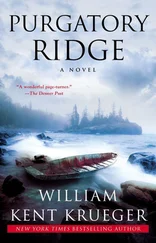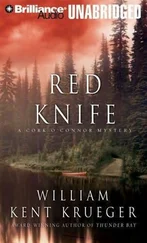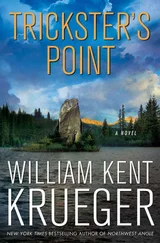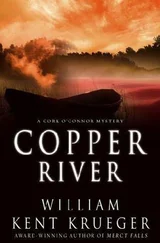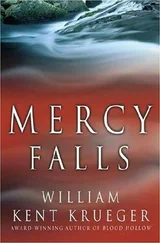He hadn’t climbed the outcrop as her father had predicted. He’d come along the base of the rock to the small inlet where Jenny had beached the dinghy. He held a rifle in his hands, and she could see that it was mounted with a powerful scope. He moved cautiously, and she understood that he was, indeed, a man who knew how to hunt. He paused and used the barrel of his rifle to move aside some debris. Jenny realized he’d found the wolf that, out of mercy, she’d killed. The hunter’s head turned, and his eyes swung to the island where she stood in the shadows, besieged and tortured but struggling to remain still. His gaze hung there an eternity while her skin crawled. Then he moved again, this time to where the dinghy lay crushed. He studied the obliterated hull, then turned and went to where the base of the outcropping met water. He waded into the lake until he could see the island where her father had taken a position atop the bluff. The hunter looked there, looked to his right across the channel toward Jenny’s island, and finally to his left beyond the outcrop at something Jenny couldn’t see. For a few moments, he was like the rock he stood next to. He lifted the rifle, fitted the stock to his shoulder, sighted through the powerful scope, and swung the barrel in a slow, purposeful arc. He didn’t have field glasses, Jenny guessed, and was using the scope for that purpose.
He carefully scanned the island where her father was atop the bluff, scoped another island farther south, and finally directed his eye to the island where Jenny hid. She flattened herself on the ground with her arm wrapped protectively around the wicker basket crawling with flies. Inside, the baby’s fussing was becoming more pronounced. She prayed he wouldn’t begin to cry. They were shielded by a very porous wall of underbrush. Jenny could see the hunter and knew that, with his magnified vision, he could see her, and any movement at all might be her undoing. The scope swung gradually until it held directly on the spot where she lay. She stared, and the black eye of the rifle barrel stared back. The baby squirmed, his little arms batting at the blanket that covered the basket. Jenny began to sing in a whisper, “Hush, little baby, don’t say a word. Papa’s going to buy you a mockingbird.” The man lifted his face from where he’d laid his cheek against the rifle stock and studied the island with his naked eye. Had he seen the raft? If he came for her and the baby, what would she do? Her mind began to search desperately for a fallback plan.
The hunter put his cheek to the stock again and continued his scan of the area. Finally he lowered the rifle, turned, and disappeared into the devastation at the base of the outcrop, heading in the direction of the makeshift shelter.
As soon as he was gone, Jenny grabbed the basket and bolted for another hiding place, fleeing the swarm of insects threatening to drive her mad. In her haste, she caught her foot on a snag and went sprawling. The basket flew from her hand. The baby spilled out onto the ground. He lay a moment, staring up at the sun as if dazed; then he let out a wail that could have been heard in Greenland.
Jenny shot a look toward the island across the channel. The hunter broke from the cover of the fallen timber, eyes on the place where the baby lay. He lifted his rifle, and he sighted.
TWENTY-TWO
Fourteen thousand islands,” Mal said. “Who owns them all?”
“Some of them belong to our people,” Amos Powassin replied.
“And most of the others are what’s called Crown Land,” Bascombe said. “They belong, technically speaking, to the monarchy of England. But they’re overseen by the provincial governments, who set them aside for preservation. That’s why most are uninhabited. Pretty much, you can’t build on them. Which is a good thing, I think. To my mind, this whole area ought to remain wild forever.”
They’d returned Cherri Allen to her home on Windigo Island. Those remaining in the boat—Rose, Mal, Stephen, Bascombe, and Amos Powassin—had headed north and were now in the devastated area, weaving among islands where trees lay fallen like blades of mown grass. It was a terrible sight, and although he was blind, Powassin seemed to sense it.
“I can feel the change here,” he said sadly. “Something magnificent has been wounded.”
“It all looks dead,” Stephen said.
“No.” Powassin shook his head, then repeated, “Wounded. The energy of life is still everywhere. I can feel that, too.”
“I don’t understand, grandfather,” Stephen said.
“Don’t understand what?”
“Why Kitchimanidoo would do this kind of thing to a place so beautiful.”
“And who is Kitchimanidoo?” the old man asked.
Stephen seemed surprised by the question. “The Creator, grandfather. The Great Mystery.”
“Sometimes us Shinnobs get lazy in our thinking, Makadewagosh, and we think of Kitchimanidoo like a human being, some kind of powerful old man, maybe. An old fart shoots sparks and magic out of his fingers, like one of them wizards in a Harry Potter movie.” The old man laughed at the image he’d created for himself. “Know what I think? I think Kitchimanidoo is not the Creator but the possibility of creation, all creation, good and bad. You understand?”
“I’m not sure,” Stephen said.
“In all good is the possibility of evil, and in all evil the possibility of good.”
“So,” Stephen said, mulling it over carefully, “a thing that seems good at first might be bad in the end?”
“Or the other way around,” the old man offered.
“So there’s the possibility of something good in all this destruction?”
“That’s exactly what I’m saying. Who knows what Kitchimanidoo is capable of? You, me, we’re just humans. In the big picture, we don’t see nothin’. And Kitchimanidoo is the big picture.”
Stephen was quiet after that. They all were. And for a long time the only sounds came from the engine grind and the propeller churning water.
“If I’m correct in my judgment of distance,” the old man finally said, “we should be approaching Bishop Point Island.”
“You nailed ’er, Amos,” Bascombe said.
“Point the bow of this tub west,” the blind man said.
“Toward Outer Bay?”
“For a bit, then we’re turning north again.”
“You’re the captain,” Bascombe said. He consulted his GPS and carefully swung the launch left.
“Long time since I visited Neejawnisug,” the old man said. “In the old days, it was a place our young men often went for giigiwishimowin. ”
“Their vision quest,” Stephen said.
The blind man seemed surprised. “You know about this old Shinnob ritual?”
“A little over a year ago, after my mother died, Henry Meloux guided me on my vision quest.”
The old man nodded. “No wonder you’re so sensible. Wish I could convince more of our young men here to give the old way a try. They think ownin’ a gun or maybe a fast boat is what makes ’em a man. I think it’s about time we headed north. You ought to see an island with a cliff face white as pigeon shit.”
Bascombe laughed. “I do.”
“Run along the left side. Real careful. Lots of hidden rocks. And with that storm, maybe some snags, too.”
“Roger,” Bascombe said.
He cut the engine, and the launch cruised slowly between the island with the pigeon-shit cliff and another island just to the south. When they came out of that passage, all Rose could see was island after island with a labyrinth of channels running between them.
“How does anyone keep from getting lost here?” she asked.
“In the old days, they didn’t,” Powassin said. “That’s why our people were able to hide the children here.”
Читать дальше

